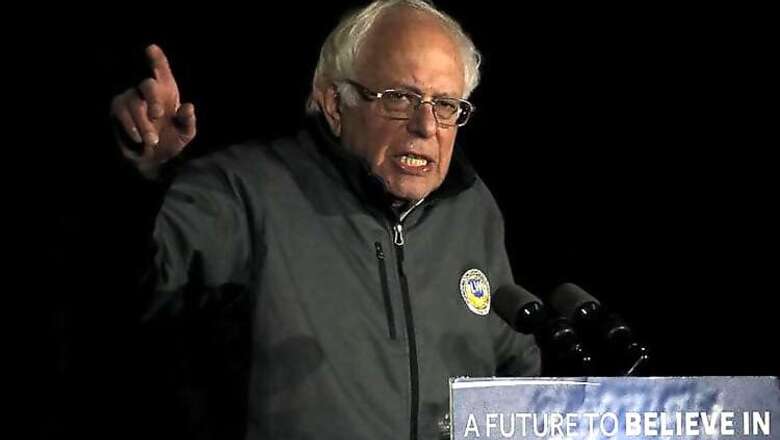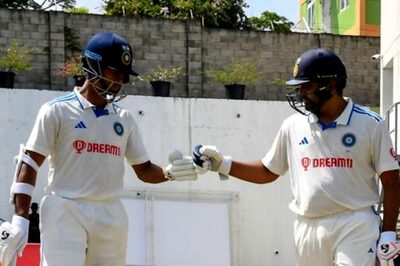
views
Washington: Democratic candidate Bernie Sanders has said that if elected president he would "absolutely" use the military if warranted, both to protect US interests and to support its allies.
He also said he would be willing to meet with the North Korean dictator, Kim Jong Un, as President Donald Trump has done.
Sanders has emerged with an early lead in the Democratic nominating process, and as a self-declared democratic socialist his foreign and security policies are starting to draw closer scrutiny. But he has denied being a pacifist.
In an interview airing Sunday on CBS's "60 Minutes," the Vermont senator was asked in what circumstances he, as commander-in-chief, would deploy US military forces. He listed these criteria: "Threats against the American people, to be sure. Threats against our allies. I believe in NATO."
"I believe that the United States, everything being equal, should be working with other countries in alliance, not doing it alone. We will not sit by," he said.
When the interviewer asked whether he would order military action if Taiwan came under attack from China, Sanders replied -- "Yeah. I mean, I think we have got to make it clear to countries around the world that we will not sit by and allow invasions to take place, absolutely."
The senator, who scored a resounding victory Saturday in the Nevada presidential caucuses, was asked if he would follow Trump's example and meet with the North Korean leader.
"I mean I've criticised Trump for everything..." he said. "But meeting with people who are antagonistic is, to me, not a bad thing." Sanders added that he believed Trump was "unprepared" when he met with Kim -- their meeting last year in Hanoi collapsed in disagreement.
"But I do not have a problem in sitting down with adversaries all over the world." In a recent New York Times survey of the Democratic candidates, Sanders and fellow Senator Elizabeth Warren said they would continue Trump's personal diplomacy with Kim, but former vice president Joe Biden, former New York mayor Michael Bloomberg and Senator Amy Klobuchar said they would not.
Sanders, along with Biden and Bloomberg, also said he would consider using force to pre-empt an Iranian or North Korean nuclear or missile test.
Sanders is known best for his positions on economic justice -- particularly the yawning gap in the US between the wealthiest Americans and those much less well-to-do.
But as his chances of winning the Democratic nomination rise, scrutiny is bound to intensify on other issues. As a student at the University of Chicago during the turmoil of the 1960s and 1970s, Sanders belonged to several leftist and anti-war groups, including the Student Nonviolent Coordinating Committee.
In 2015, when a Politico interviewer questioned him about his decision to register as a conscientious objector during the Vietnam War, he replied: "I am not a pacifist. I supported the war in Afghanistan," in the aftermath of the September 11, 2001 attacks, he noted.
In 1991, however, he had opposed the first Gulf War.
Sanders told Politico that he had backed the Clinton administration's military actions in Kosovo and President Barack Obama's air strikes in Syria.
But he then added, "I happen to believe from the bottom of my heart that war should be the last resort."




















Comments
0 comment